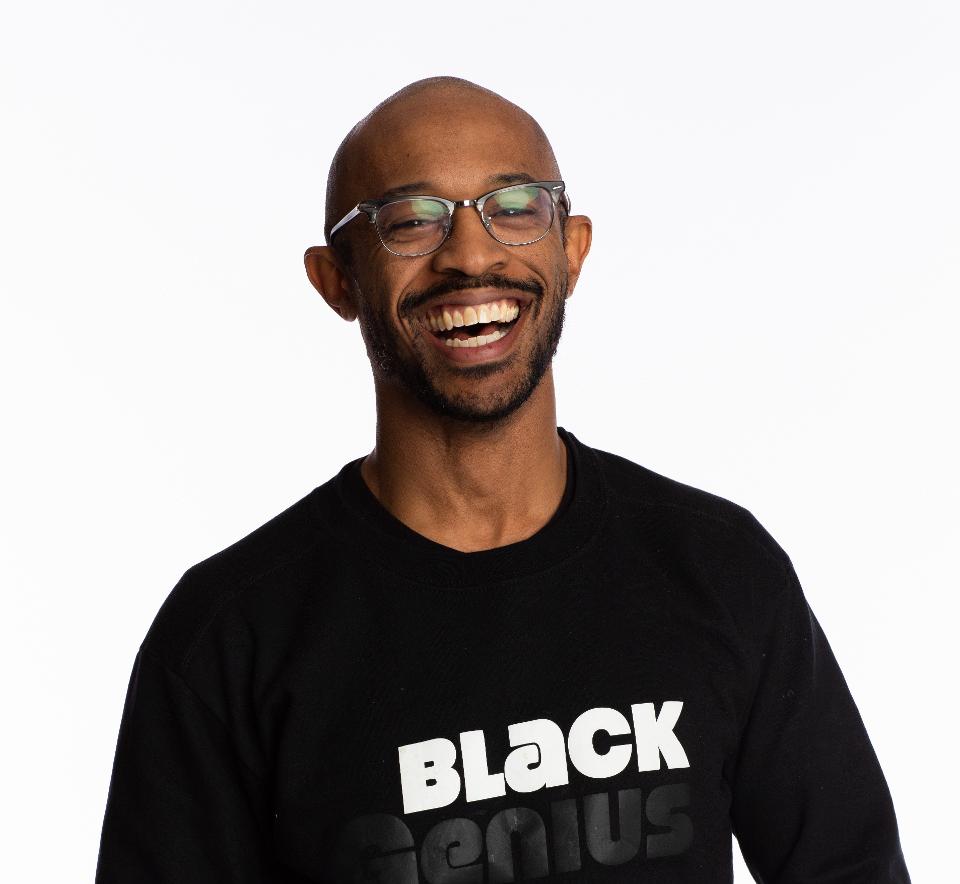
Photo credit:
Flynn Larsen
Will Jackson started Village of Wisdom to help parents and teachers unlock the gifts, talents, and prior knowledge of Black students. Ashoka’s Simon Stumpf caught up with Will to hear more about his vision for making school a true and supportive home for every student, and why his approach is so important now.
Will, why is it important to focus on the education system versus individual students?
Because the system is actually what’s causing harm. I use the metaphor of fish and water. Let’s say you arrive at a lake and you see that not one but all the fish are sick or dead. You probably will want to examine the water quality, right? Same with race and education — the problem is not within Black children, it’s within a system that’s disproportionately suspending them, disproportionately not recommending them for gifted or advanced classes, disproportionately not looking out for them when it comes time to prepare for college applications. A child can’t fix this, a child can’t say “put me in an AP course.” The teachers, assistant principals, counselors are making those decisions and they’re often deciding based on the kid’s skin color.
How is race reflected in education today?
Nearly 80 percent of the teachers in America are white. Close to 40 percent of K-12 students are Black and brown kids — about 20 percent are Black kids. This mismatch is important for a few different reasons, but the one we’re focused on has to do with prior knowledge — the set of experiences and knowledge that students and teachers bring into the classroom.
Why is prior knowledge so key?
Because learning is the act of connecting new information to prior knowledge. So when a teacher says, “well, these kids don’t come to school knowing anything” or “their parents aren’t invested or investing in them,” what is actually true is that the child is coming with prior knowledge that doesn’t match the knowledge relied upon to teach in this country. For example, teachers may use analogies that students miss completely because the teacher is trying to connect to prior knowledge that the student doesn’t have because it’s not a part of their cultural experiences.
How do we bridge or close this knowledge gap?
Hiring with a new lens can help with part of this, but that’s longer term. What we are doing at Village of Wisdom is developing new tools, measures, and communication processes that allow kids and families to communicate all the strengths and knowledge that a student is bringing to the classroom to educators. This new information actually helps teachers do what they love — design creative learning challenges that captivate their students, inspiring them to learn and grow.
Your Black Genius planning tool helps with this translation. Tell us about it.
It’s a strength-based, individualized learning tool that frames Black culture in positive ways and challenges students to think about how to fight against injustice. Any parent can go to our site right now and set up a profile for their child. You start with the Black Genius brainstorm that’s a series of questions you can ask your child. How does he think about his Blackness? What are some of the cultural environments she moves across? What types of injustice is she most moved by? Who does he trust? Older students can do this on their own, of course. So this is a tool for parents and students to use on their own, then take to schools and teachers.
Interesting. Schools often push information to parents — you’re proposing the opposite.
Yes, because all strong relationships are two-way, right? So this is a tangible way that parents can add value to the education system by giving teachers more information about their children. We’ve begun to support teachers with what to do with the information: “Okay, you get this Black Genius Profile of one of your students. Now, as you think about what you’re teaching in the next six weeks, can you embed one of this child’s interests into one of the lessons? Can you think about, oh, they’re really interested in Simone Biles and use that.” The new information helps teachers activate the student’s prior knowledge and draws them in a way that engages their curiosity and interests in new and more meaningful ways.
You’re based in Durham, North Carolina — what results are you seeing there?
We want to become a bright spot for the country, to say, “Hey, this is what this looks like. You can do this, too, and here’s how.” We have organically grown an online community of more than 1,000 parents in our Black Parents Connect Facebook group. We have had more than 300 parents and students complete the Black Genius Profiles. And, in classrooms where teachers use the Black Genius Profile to enhance their instruction, early evidence suggests Black students are more engaged, have greater trust in their teachers, and are more likely to persist through difficult learning challenges.
Looking ahead, what will be different in 10 years?
We’re talking about giving parents enough information to be a part of essential education decisions. Without this kind of mutual accountability, we’ll end up in some of the places that we don’t love about where our world is going. And this isn’t about one person — me or anyone else — it’s about the village’s wisdom, the wisdom that everybody brings. We all benefit when we see each other and the genius that we bring to the table. Then we get to solutions that hopefully can transform our whole education system into one that liberates Black Genius instead of oppressing it. And then, in the future, transform our world.
This interview was condensed by Ashoka. Will Jackson is a 2019 Ashoka Fellow. You can read more about him and his team’s work here.
The article was origianlly posted at: %xml_tags[post_author]% %author_name% Source%post_title%
